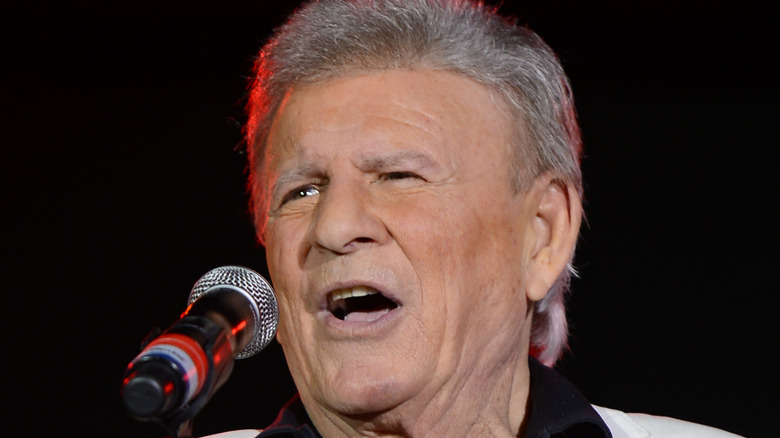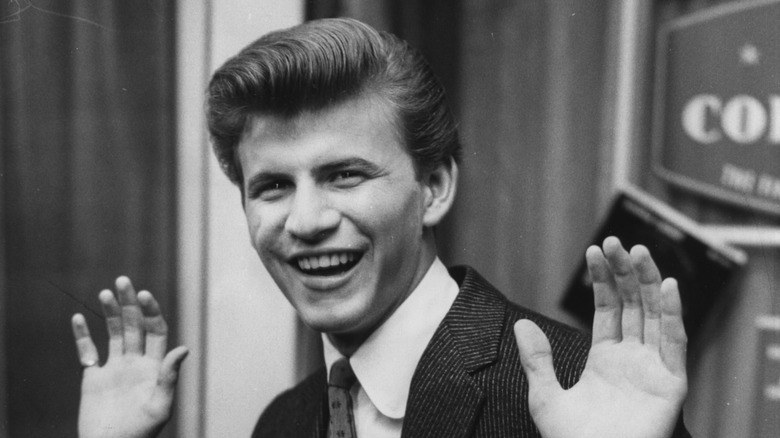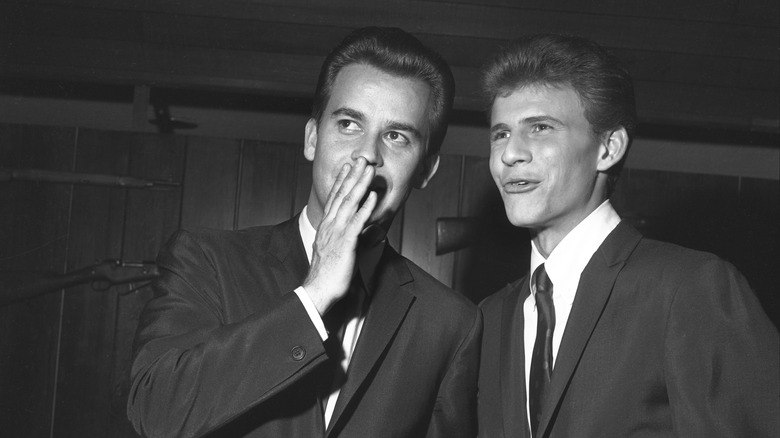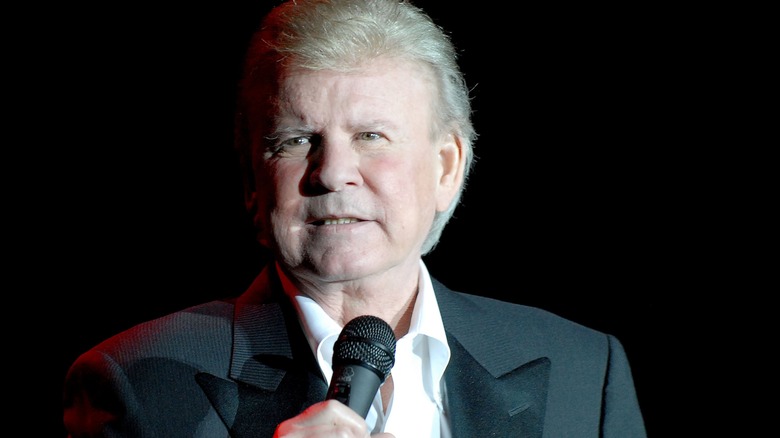What Was Bobby Rydell's Net Worth When He Died?
Bobby Rydell made a name for himself as a teen idol back in the 1950s and 1960, enjoying a meteoric rise during a transitional phase for the music industry. He went on to have a career that lasted six decades and was still performing for crowds many years after the word teen would have been applicable.
Sadly, Rydell died on April 5, 2022, at the age of 79 in Abington, Pennsylvania, not far from his hometown of Philadelphia and just a few weeks short of his 80th birthday. According to The New York Times, a spokesperson said that the star died due to complications from pneumonia. At the time of his death, Rydell was still actively performing, and according to his official website had a handful of upcoming shows scheduled including shows in Atlantic City, New Jersey; Shipshewana, Indiana; and Lancaster, Pennsylvania.
Bobby Rydell's rise to stardom
Rydell, whose real name was Robert Louis Ridarelli, was a talented musician who became best known for his vocal abilities, but also knew his way around a drum kit. Before making a go of it as a solo singer, Rydell played drums in a band that also featured Frankie Avalon — who went on to have successful acting and music careers in his own right — on trumpet.
Rydell's break as a solo artist came with his 1959 song "Kissin' Time," which he recorded when he was just 17 years old (via AllMusic). He was known for a persona that was a stark contrast to what many would consider a typical rockstar. Rydell had a trio of traits that The New York Times described as a "romantic voice, cute face, and regular-guy personality" which all served him well over his entire career.
The height of that career came in a strange period for rock and pop music. 1959 was the year Elvis was overseas in the military, and the same year Buddy Holly's career came to an abrupt end when he died in a plane crash. The next seismic shift didn't come until the Beatles arrived in America in 1964, and in the interim teen idols like Rydell and Frankie Avalon hit their strides.
Rydell hit his peak in the early 1960s
One of Rydell's biggest career distinctions was having been the youngest artist to headline the famed Copacabana (via The New York Times). The Copacabana was a legendary nightclub, founded in 1941 and immortalized in Barry Manilow's 1978 hit song "Copacabana," per The New York Post. Variety hit the nail on the head while describing Rydells performance at the iconic club and why he had become so immensely popular.
"His style is packed with rhythm and bounce and his 'nice boy next door' demeanor is quite winning," the showbiz newspaper wrote at the time, per The New York Times. "Even the adults realize this, and it works to his advantage."
While many contemporary artists trafficked in edgier, more dangerous performances and music that pitted teenagers against their parents for control of the radio dial, Rydell's nice-guy image cast a wider net that appealed to both. Rydell used that to his advantage in the decades that followed with extensive touring that contributed to his multi-million dollar net worth at the time of his death.
Rydell toured extensively until his death
By the mid-1980s, Rydell's popularity had decreased from its peak some twenty years earlier, but he was still performing live shows. In 1985, he started touring with fellow Philadelphia teen idols, Frankie Avalon and Fabian. They were billed as The Golden Boys and toured extensively playing shows that dripped with nostalgia and appealed to several generations of fans and their kids.
According to The New York Times, these shows weren't just fun for the audience. Rydell said in a 2012 interview that they were fun for him too. "We're not trying to fool anybody. Everybody has known us for the better part of 50 years. We just go out there and have fun and the audience can see that."
Celebrity Net Worth estimates that at the time of his death, Rydell had a net worth of around $10 million. It seems safe to bet that a good chunk of this could be attributed to royalties from hit songs like "Kissin' Time" and his 1963 ode to the Jersey Shore, "Wildwood Days." It's also likely that his net worth was further augmented by his heavy touring schedule which didn't show signs of slowing even as the late singer approached his 80s.



